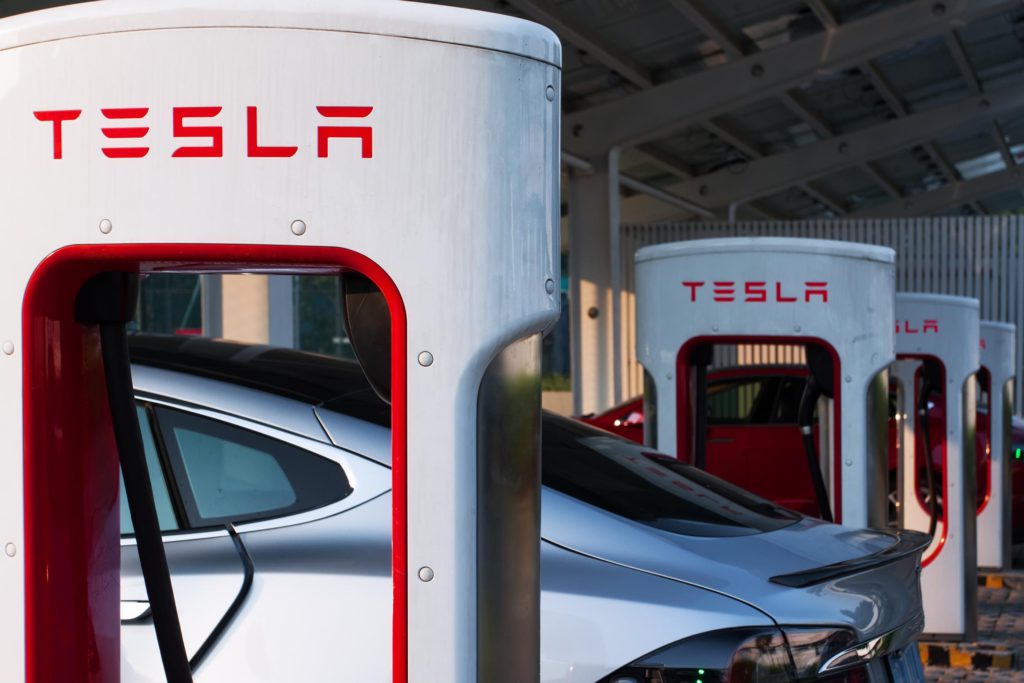Swedish study calls for smaller EV batteries, finds Tesla more polluting than an 8-year-old car
16 June 2017

16 June 2017
Swedish researchers have argued that electric vehicle (EV) batteries should not be as large as possible, but as large as necessary. This is the conclusion of their study which found that in terms of equivalent CO2 emissions, a car with an internal combustion engine (ICE) can drive for eight years before it reaches the same environmental load as a Tesla with a 100kWh battery.
Published in the journal Ingeniøren, the Swedish meta-study, which analyses and summarises studies completed so far in the field, found that around 150 to 200kg of CO2 equivalents (environmental impact equivalent to that of the release of CO2) are produced for every kilowatt hour (kWh) storage capacity of electric car batteries.
For example, taking two electric cars, the Tesla Model S and Nissan Leaf, which have 100kWh and 30kWh batteries respectively in Denmark, the study says these capacities are equivalent to 17.5 tonnes and 5.3 tonnes of CO2 being generated respectively.
To put this in perspective, a round-trip from Stockholm to New York, by International Civil Aviation Organisation figures, releases around 600kg (0.6 tonnes) of CO2 into the atmosphere. In Germany, annual emissions of CO2 are currently almost 10 tonnes per person.
Therefore, the study has calculated that a fossil fuel vehicle can currently drive for more than eight years before it reaches the same environmental impact of a Tesla. For the Nissan Leaf, with its smaller capacity battery, this figure comes in at three years.
Mia Romare, one of the two researchers of the study, hence concludes: ′Unnecessarily large batteries weigh more on the environment. One should therefore consider whether one can manage with smaller batteries.’
According to the study, only 10-20% of the environmental impact is generated by the source extraction of raw materials such as lithium from the mines. The main environmental impact comes from the processing of these raw materials and the production of the lithium-ion batteries in factories, which accounts for around 80% of the environmental impact.
However, while it is important to draw attention to this environmental impact, which challenges the assumption that current EVs are cleaner than combustion engines (not to mention that most electricity they use is currently generated by fossil fuels), it is also important to note that this revelation is unlikely to damage the industry move to electric vehicles. It is somewhat unfair to compare a relatively new technology to one that has been refined over more than 100 years.
In addition, it is highly likely that the size of EV batteries will be determined by commercial factors (i.e. demand from consumers), over which battery producers have no direct control.
Massive economies of scale will bring the per-car environmental impact of EVs down, just like it did with petrol and diesel cars, and new manufacturing methods will yield further efficiencies. Few would doubt that EVs will be far less polluting than combustion engines in the long term.
Nevertheless, this environmental impact from EV battery production is certainly a concern OEMs should be aware of. Environmental improvements in EV manufacturing will need to be a top concern to avoid excessive ′red tape’ interventions by policymakers to force such changes through.
Photograph courtesy of iStock
The insight behind the news
Never miss another story – sign up to receive your complimentary Autovista Group Daily Brief. This timely and incisive daily briefing covering automotive news and insights on the issues affecting your business is delivered direct to your inbox.